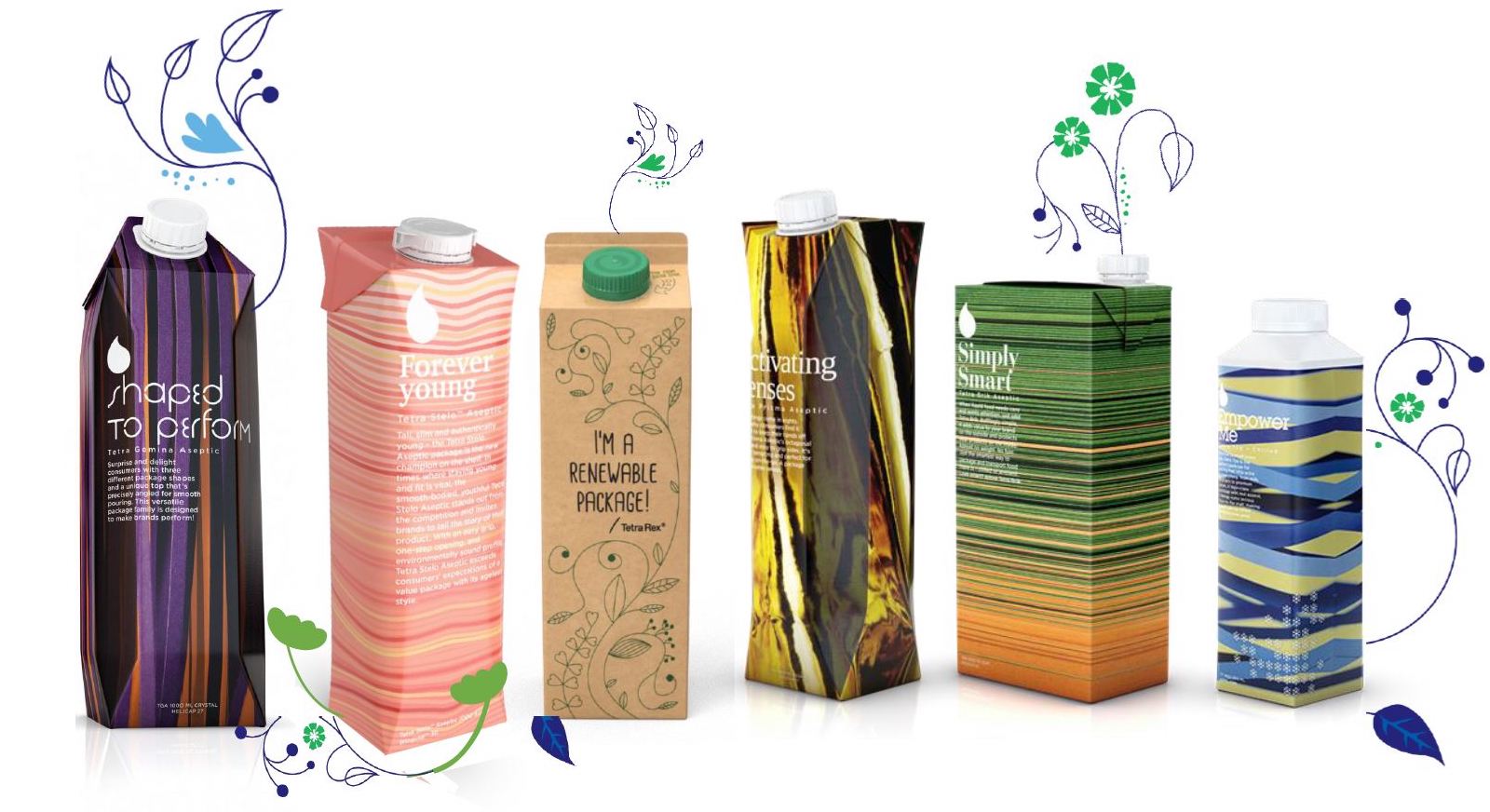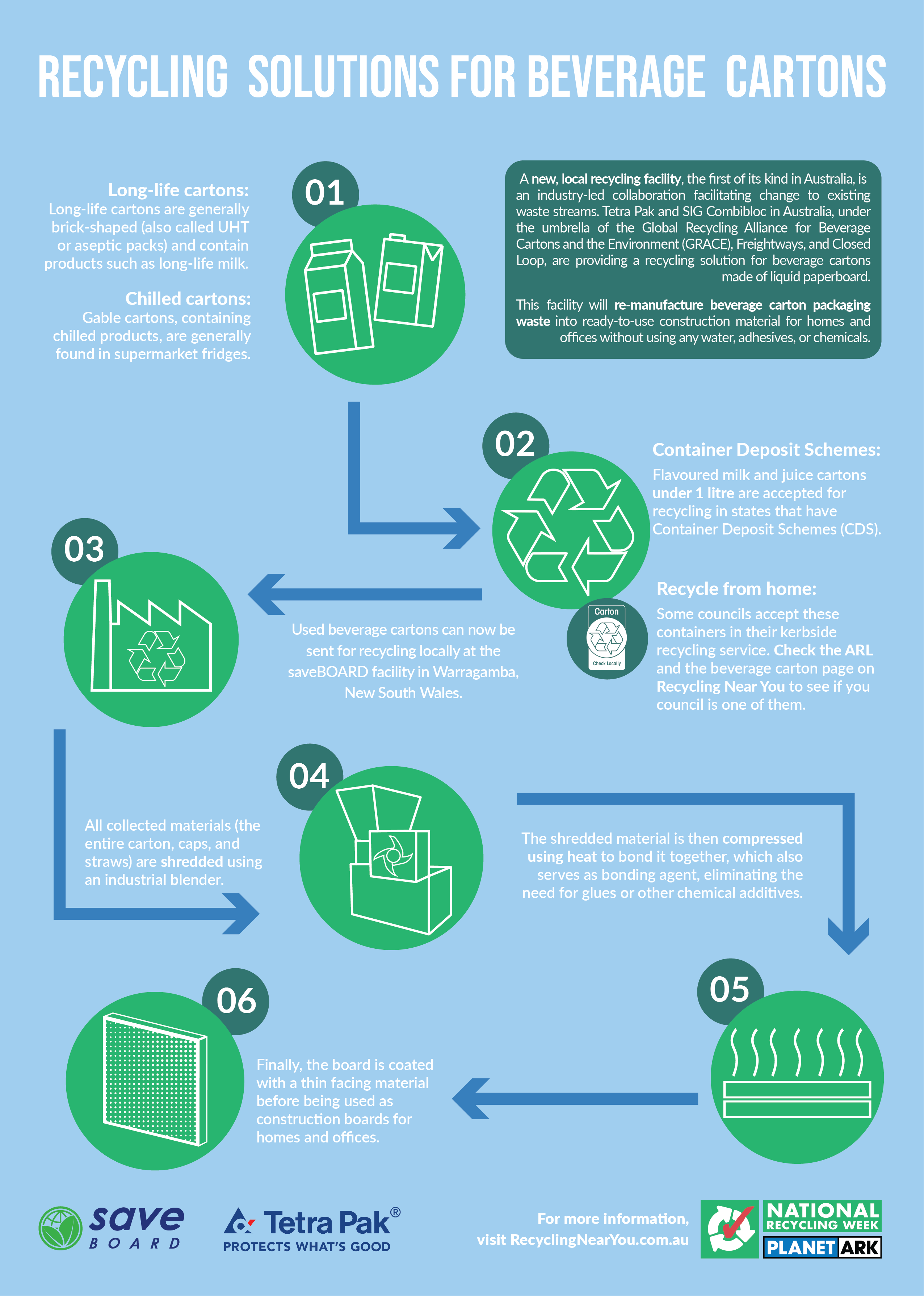TetraPak is proud to be the sponsor of the Recycling Near You cartons recycling page.

At Tetra Pak, support for recycling is one way they demonstrate their commitment to protecting the environment. Tetra Pak’s approach to sustainability is shaped by its brand promise ‘protect what’s good’. This encompasses the commitment of protecting food, people and futures.
Tetra Pak is a sponsor of Planet Ark’s Recycling Near You and National Recycling Week as part of its commitment to supporting the transition to a low-carbon circular economy.

Tetra Pak is working towards a low-carbon circular economy that has minimal climate impact across the entire value chain, without compromising on food safety or quality. It is working to achieve this by delivering food and beverage packaging with the lowest carbon footprint and highest material efficiency and increasing the rate of carton recycling globally.
Increasing recycling
Today, many Australians have access to carton recycling through their kerbside collection or through a Container Deposit Scheme. These cartons are recycled into sustainable building materials or paper and cardboard products such as boxes, paper towels and tissues.
However, carton recyclability in Australia has been in decline since China’s ‘National Sword’ policy in 2018, which set strict contamination limits on recyclables, effectively ceasing the export of Australian recycled materials to China. Since then, cartons are being recycled alongside paper and cardboard. The layers of plastic and foil in long-life cartons that are used to preserve food for long periods of time without the need for refrigeration make it hard to recycle along with paper as it lowers the purity of those non-fibre components. To combat this, Tetra Pak have invested in a solution called saveBOARD for the end-of-life of the products they manufacture.
The entire used beverage carton (both chilled and long-life milk cartons) will now be recycled locally at the saveBOARD facility in Warragamba, New South Wales. This pioneering recycling facility, the first of its kind in Australia, is an industry-led collaboration between Tetra Pak and other carton manufacturers, Closed Loop, and Freightways. This will reduce the dependency on exporting cartons overseas and increase the number of cartons collected for recycling.
Low-carbon benefits
Tetra Pak engaged an independent third-party to conduct a Life Cycle Assessment (LCA) that compared the environmental performance of Tetra Pak cartons to a range of packaging used for the same foods and beverages. The study found that in Australia cartons have the lowest or equal lowest carbon footprint of all packaging assessed including glass, cans, and plastic.
This is because cartons are made mostly of paper fibre, which is renewable, and they use very little material to package the food or beverage they keep safe. Find out more about the peer-reviewed study conducted on behalf of Tetra Pak.
Want to know more?
See if you can recycle your cartons in your household recycling bin by checking the beverage cartons page on Recycling Near You.
To learn more about Tetra Pak’s sustainability initiatives, visit the Tetra Pak website.





